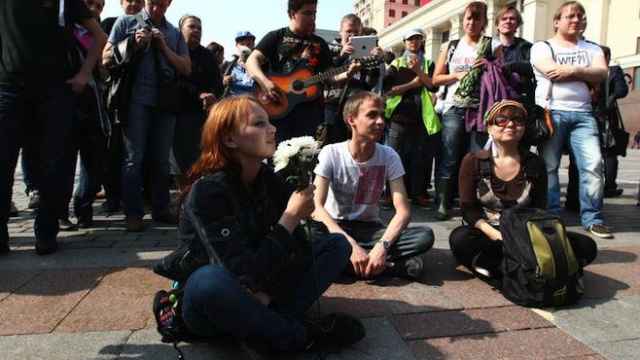Автобиографичный: semi-autobiographical
As I was listening to a radio show about the customs official charged with corruption, I heard one of those great Russian language distinctions. Discussing a film clip of said official standing in his closet by piles of cash, the host asked an expert guest if this was a good way to fight corruption. Ну, я бы сказал — не эффективный, а эффектный. (Well, I’d say not so much effective as… effective?)
Ah, my favorite Russian mind-bender: Paronyms.
Paronyms are words that derived from the same root word but have different meanings. They can be hard to catch — you have to listen very closely. They are also sometimes difficult to define and often miserable to translate.
In this case, it’s not hard to translate эффектный if you just forget how much it sounds like English. It really means: showy, creating an effect. So the guest said that Operation Cash Closet was not an effective way to deal with corruption, but was just for show. But of course, you lose the nice rhetorical device of near repetition: эффективный—эффектный.
Learn a couple of these and you’ll sound smart and even poetic.
For example, here’s a lovely distinction: автобиографический and автобиографичный, easily recognized as autobiographical. But the first one refers to something that is totally an autobiography: Эта автобиографическая книга, не шахматная, но шахматы пронизывают ее насквозь (The book is an autobiography, not a chess book, but chess pervades it.) The second refers to something that has elements of autobiography, uses some aspects of the author’s life, but is not a strict autobiography: Сцена знакомства Мастера и Маргариты автобиографична ― не столько в событийном, сколько в психологическом аспекте (The scene where the Master and Margarita meet was taken in part from real life — not so much the events as the psychological aspects of it.)
Or take благотворительный and благотворный. They both come from the root благо, which means a blessing, a benefit, or the common good. But one word means actions to aid those in need, and the other means actions that are useful and have a positive influence. That is, they both create good in different ways. Каждый месяц она едет в метро и получает продуктовый паек в благотворительной американской организации (Every month she takes the metro to get a food ration at an American charitable organization.) Умеренные физические нагрузки и здоровое питание благотворно влияют на здоровье (Moderate physical exercise and a healthy diet are beneficial to health.)
I like the paronyms that make a distinction between doing something and having something done, like малопонятливый and малопонятный. Once again, it’s easy to see the root words embedded in these near twins: мало (little) and понять (to understand). But the first is a person who understands little, and the second is a thing that can be little understood. That is, the first is someone who doesn’t have the sense God gave a goose, and the second is a text or statement that doesn’t make much sense. So you might say: Не то что студент малопонятливый, а текст малопонятный (It’s not that the student is dimwitted, it’s that the text doesn’t make much sense.)
For your linguistic pleasure, there are even paronymous verbs, like толстить and толстеть. The first makes you fat or look fat; the second is you getting fat. Я не толстею! Просто эта юбка меня толстит. (I’m not gaining weight. This skirt just makes me look fat.)
Very useful distinctions.
A Message from The Moscow Times:
Dear readers,
We are facing unprecedented challenges. Russia's Prosecutor General's Office has designated The Moscow Times as an "undesirable" organization, criminalizing our work and putting our staff at risk of prosecution. This follows our earlier unjust labeling as a "foreign agent."
These actions are direct attempts to silence independent journalism in Russia. The authorities claim our work "discredits the decisions of the Russian leadership." We see things differently: we strive to provide accurate, unbiased reporting on Russia.
We, the journalists of The Moscow Times, refuse to be silenced. But to continue our work, we need your help.
Your support, no matter how small, makes a world of difference. If you can, please support us monthly starting from just $2. It's quick to set up, and every contribution makes a significant impact.
By supporting The Moscow Times, you're defending open, independent journalism in the face of repression. Thank you for standing with us.
Remind me later.







